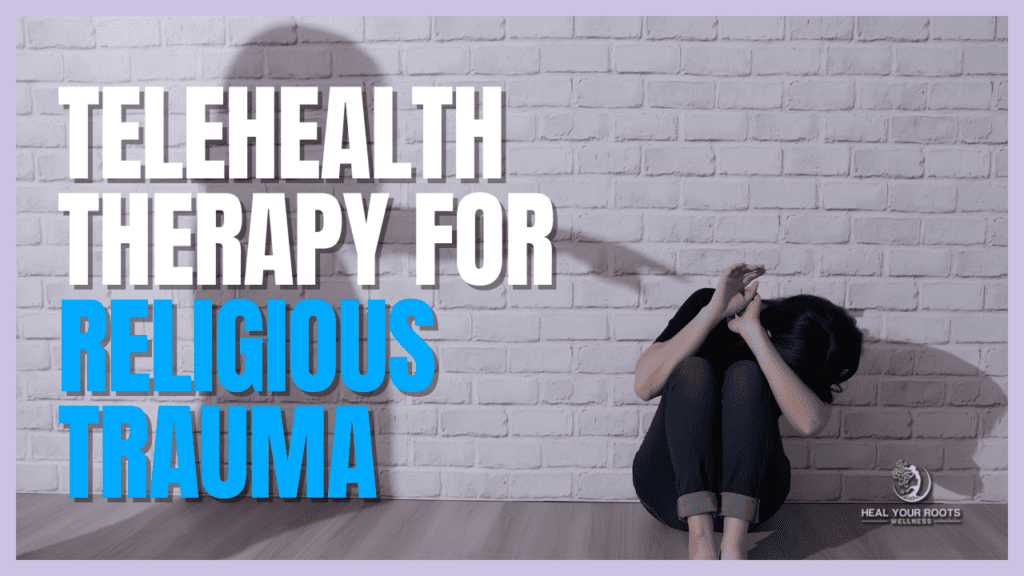In a world where spirituality and religion play significant roles in many people’s lives, the concept of religious trauma is often overlooked. Yet, for some, religious experiences and teachings, instead of providing comfort and guidance, can leave deep psychological scars. This article delves into the often unspoken world of religious trauma, offering insights into its nature, impacts, and pathways to healing.
What is Religious Trauma?
Religious trauma occurs when an individual experiences harm, either emotional or psychological, resulting from religious beliefs, practices, or structures. This can stem from overly strict upbringing, dogmatic teachings, or even spiritual abuse. Unlike general skepticism or disillusionment with religious practices, religious trauma leaves individuals struggling with deep-seated fear, guilt, and confusion.
What Is Religious Trauma Syndrome?
Religious Trauma Syndrome (RTS) is a condition characterized by severe mental and emotional distress caused directly by damaging experiences with religion. Often resulting from an authoritarian, dogmatic upbringing or a traumatic religious experience, these experiences cause individuals to grapple with complex emotions, such as deep-seated fear, guilt, or confusion. RTS can manifest through symptoms like chronic anxiety, depression, or even Post-Traumatic Stress Disorder (PTSD), deeply affecting an individual’s quality of life. However, it is important to remember that individuals suffering from RTS are not alone, and professional help is available. Online therapy offers a safe, inclusive, and beneficial avenue for individuals experiencing RTS, providing them with the tools and support they need on their journey towards healing.
Religious Trauma Symptoms
Religious trauma can manifest in numerous ways, unique to each individual, but there are commonly observed symptoms.
- Chronic Fear or Anxiety
Often, individuals experience persistent fear or anxiety tied to religious concepts, such as divine punishment or the afterlife, that can interfere with daily functioning. - Depression
Feelings of sadness, despair, or a lack of interest in previously enjoyed activities often surface as a result of religious trauma. - Guilt or Shame
Individuals may feel deep-seated guilt or shame about their doubts or disbelief, often reinforced by religious teachings. - Struggles with Self-Identity
They may experience confusion or conflict about their self-image and identity, especially if they’ve distanced themselves from their religious community. - Intrusive Thoughts or Flashbacks
Some individuals have intrusive thoughts or flashbacks to traumatic religious experiences, similar to PTSD. - Social Isolation
Leaving a religious community or questioning beliefs can lead to isolation, loneliness, or difficulties in forming new relationships. - Cognitive Difficulties
These can include difficulty thinking critically or making decisions, often resulting from dogmatic teachings that discourage questioning. - Poor Body Image or Dysphoria
Certain religious teachings may lead to negative body image or feelings of bodily discomfort. - Sleep Disturbances
Anxiety or fear related to religious concepts can result in sleep problems like insomnia or nightmares. - Loss of Meaning or Purpose
Individuals may struggle to find a sense of meaning or purpose outside their religious upbringing.
It’s crucial to remember that help is available and recovery is possible. Trained therapists can provide the necessary tools and strategies to navigate and overcome religious trauma.
Religious Trauma Examples
Here are a few examples to help illustrate the scope of religious trauma:
- Rejection Due to Sexual Orientation or Gender Identity
Individuals identifying as LGBTQ+ may experience religious trauma if their religious community rejects their identity. This can result in intense feelings of guilt, shame, and fear, often leading to internalized homophobia or transphobia. - Fear of Divine Punishment
Individuals may live in constant fear of divine retribution due to their inability to live up to strict religious standards. This fear can significantly impact their day-to-day lives and mental health. - Excommunication or Shunning
Some religious practices involve cutting off individuals who challenge or question religious beliefs. This sudden loss of community and social network can be deeply traumatic. - Religious-Based Abuse or Exploitation
Abuse or exploitation (physical, emotional, or sexual) by religious leaders or within religious institutions can cause profound trauma. The abuse is often justified or covered up by the religious authority, adding another layer of trauma. - Childhood Religious Trauma
Children brought up in overly strict religious environments may experience trauma as they grow older. They may struggle with fear, guilt, and shame associated with the religious expectations ingrained in them from a young age.
Remember, healing from religious trauma is possible with professional help. Therapists skilled in religious trauma can provide a safe space for exploration and recovery. Online therapy platforms are increasingly offering specialized therapeutic assistance for those dealing with religious trauma.
What are the causes of religious trauma?
- Strict or Extremist Upbringing
Being raised in an environment with rigid religious rules and expectations. - Spiritual Abuse
Exploitation or manipulation using religious teachings or authority. - Conflict Between Personal Values and Religious Teachings
Struggling with personal values that clash with institutionalized religious beliefs. - Institutional Policies
Policies or dogmas within religious institutions that discriminate or harm specific groups.
How to Heal from Religious Trauma
Healing from religious trauma is a unique and personal journey, but there are several therapeutic approaches that can significantly aid in this process.
Seek Professional Therapy
Engaging in therapy with a professional who understands religious trauma can be immensely beneficial. Therapists can offer cognitive-behavioral therapies (CBT), which can help you manage your thoughts and feelings and change the way you react to certain triggers. They can also provide a safe and confidential space for you to express your feelings and explore potential ways to heal.
Join Support Groups
Participating in support groups, particularly ones aimed at people recovering from religious trauma, can provide a sense of community and understanding. It’s comforting to know you’re not alone and to hear others’ stories of recovery.
Practice Self-care
Self-care is an essential aspect of any healing process. This can involve physical activities like exercise, maintaining a healthy diet, and getting enough sleep. Equally important is taking care of your mental health, which might include meditation, journaling, or simply spending time doing things you love.
Explore Different Beliefs
If you feel comfortable doing so, exploring different belief systems can help. This doesn’t necessarily mean adopting a new religion, but rather opening your mind to different philosophies and ways of understanding the world.
Remember, every person’s healing journey is unique, and what works for one may not work for another. Consider seeking professional help to find the best therapeutic approach for you.
Acknowledgment and Acceptance
Recognizing the trauma and its impact is the first step towards healing. Accepting that the pain experienced is valid and significant can be empowering.
Building a Supportive Community
Finding a community, whether it’s a support group for those who have experienced similar traumas or a circle of friends who understand, can be incredibly healing.
Exploring Personal Beliefs
Engaging in a personal journey to explore and understand one’s own beliefs outside of the imposed religious framework can be liberating.
Mindfulness and Self-Compassion
Practices like mindfulness can help in managing anxiety and guilt, while self-compassion encourages a kinder self-narrative.
Create Healthy Boundaries in Relationships
Setting boundaries with individuals or institutions that may have contributed to the trauma can be an essential step in healing.
The Benefits of Online Therapy for Religious Trauma
Online therapy has become increasingly popular for its convenience and accessibility. For those struggling with religious trauma, online therapy can provide a safe and comfortable space to explore their experiences and emotions without fear of judgment or repercussions.
The Role of a Religious Trauma Therapist
A religious trauma therapist plays a crucial role in the healing journey of individuals grappling with religious trauma. Skilled in understanding the complexities of religious trauma, therapists provide a safe, empathetic, and nonjudgmental environment for open dialogues. They help patients understand and process their experiences, emotions, and beliefs, often using evidence-based techniques such as Cognitive Behavioral Therapy (CBT), trauma-focused therapy, or mindfulness practices. Moreover, they aid in the development of coping mechanisms to manage symptoms like anxiety, guilt, and depression. With their help, individuals can redefine their belief systems, identity, and relationships in a healthier manner, fostering resilience for a more fulfilling life. This support can be pivotal in overcoming religious trauma and regaining a sense of empowerment and autonomy.
Qualifications of Online Therapists for Religious Trauma
When seeking online therapy for religious trauma, it is essential to ensure that the therapist has the necessary qualifications and experience in dealing with this specific type of trauma. Look for therapists who have expertise in religious trauma, as well as proper licensure and credentials.
A therapist specialized in religious trauma can provide a unique and nuanced approach to therapy. They are trained to understand the complexities of religious beliefs, practices, and structures and how they can contribute to trauma.
When seeking therapy for religious trauma, it is essential to find a therapist who understands the complexities of this type of trauma. A qualified and experienced therapist can guide individuals through their healing journey with sensitivity and understanding, while also providing evidence-based techniques to manage symptoms.
The Inclusivity of Online Therapy
Online therapy platforms often offer a diverse range of therapists from various backgrounds, making it easier for individuals to find a therapist who understands their religious beliefs and values. This inclusivity allows for a more personalized and tailored approach to therapy, promoting healing in a safe and understanding environment.
Personalized Treatment Plans
Every individual’s experiences with religious trauma are unique, and therefore, their treatment should be tailored to their specific needs. A therapist specializing in this area can create a personalized treatment plan that addresses the individual’s specific symptoms, triggers, and beliefs.
Overview of Religious Trauma
Religious trauma is a complex and sensitive issue that requires careful navigation. Healing is not about negating the positive aspects of one’s religious experiences but about addressing and healing from the pain and conflict they may have caused. By acknowledging and addressing religious trauma, individuals can embark on a journey of self-discovery and healing, ultimately leading to a more authentic and peaceful existence.






